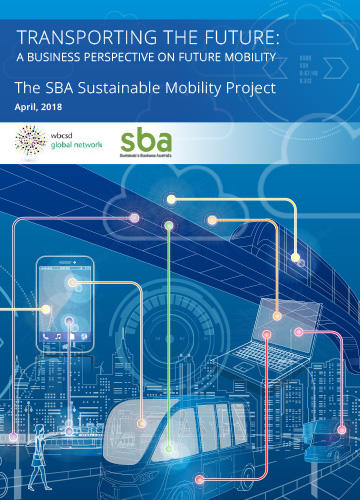
Mobility, how people move around and access opportunities, is on the cusp of radical change. New technology and business models are combining with increased and decentralised urbanisation, a more flexible approach to car ownership, and a demand for hyper-connection to generate a new era of mobility that is predicted to be faster, cleaner, safer, and more efficient and equitable, profoundly changing how people and goods move about.
Future mobility will be cheap, door to door, personalised and‘on demand’. The boundaries between private, shared, and public transport will be blurred, possibly eliminated, and recast. Transport options will be multi-modal, connected, autonomous and electric with service providers delivering the entire travel experience. While some people will still have private vehicles, the majority could well opt for the far more economic option of a combination of shared and public transport.
This report is part of the three-year Sustainable Mobility Project (SMP), a cross-sector collaboration of Sustainable Business Australia (SBA) members, to lead an Australian business response to the challenges and opportunities of meeting Australia’s mobility needs more sustainably. The report examines future mobility trends and predictions; how future mobility could enable a more sustainable future and the impact of this for business. The report objectives are to:
- Inform business about future mobility, including its impact commercially and sustainably;
- Make the case that all business has an important role to play in achieving sustainable future mobility; and
- Make recommendations to enable and incentivise business to play that role.

